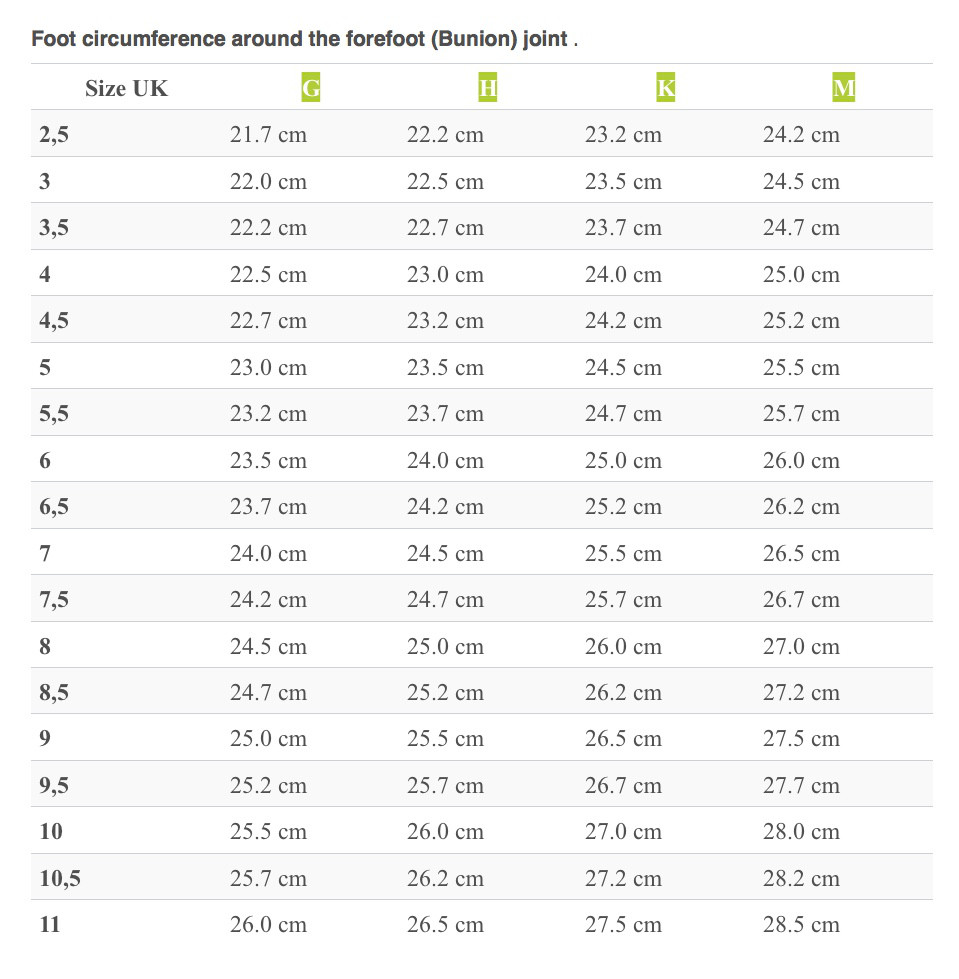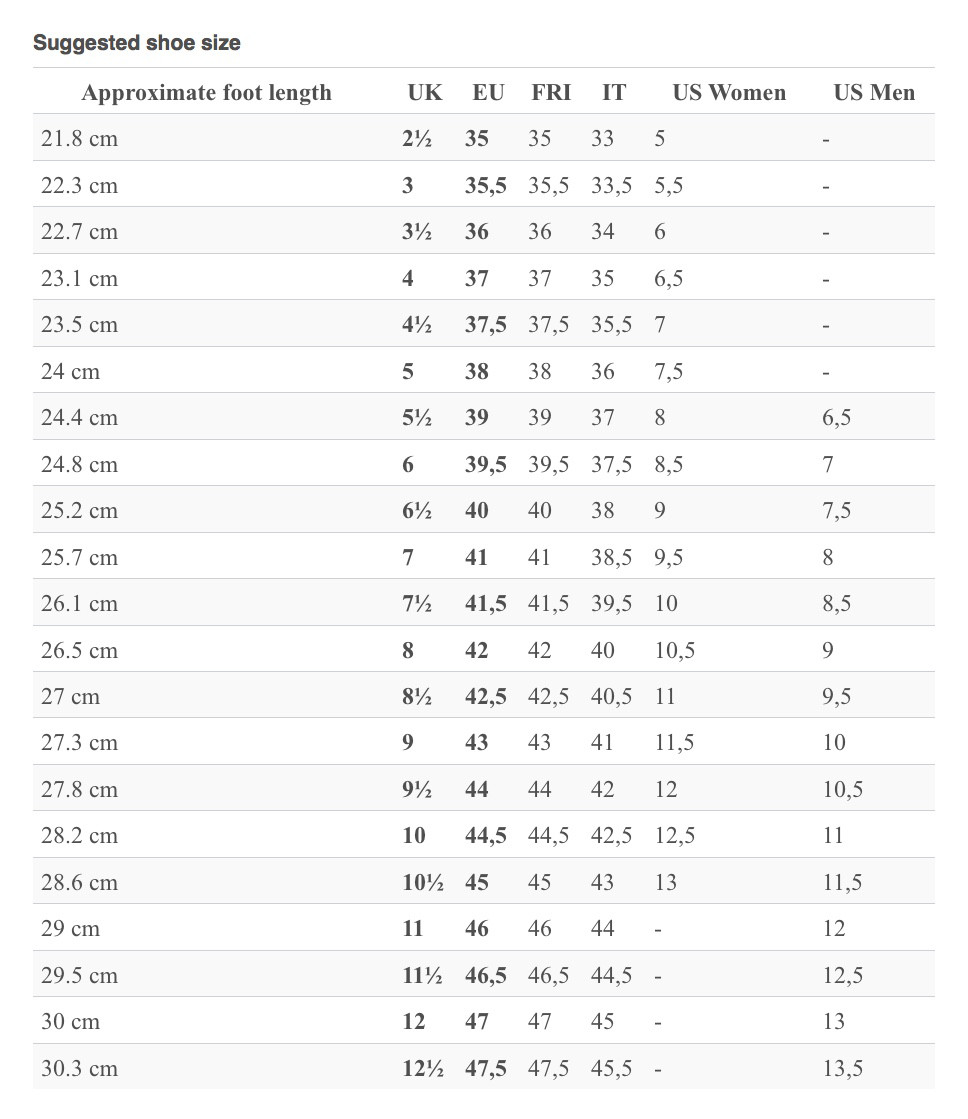What do widths Mean?!
G, H, K OR RATHER M?
Which shoe size is right for me?
Having shoes that are too tight is not only unpleasant for your feet but can even lead to foot health issues. When it comes to shoe width, complaints like "Oh, my feet hurt " are not uncommon. Too often, pressure points and aching feet are accepted due to too tight shoes and the wrong shoe width, instead of buying the right footwear from the outset.
You might ask; “What should I pay attention to in the width of the shoe?” and “How do I find out the shoe size I need?” For this, the circumference of the foot must be measured. We'll tell you how to do it.
Measuring shoe width is so easy!
To determine your own shoe width, only a tape measure or a shoelace and a ruler is needed. The optimal time to measure the width of the foot is in the afternoon or evening, as the load throughout the day causes the foot to be supplied with more blood making it somewhat larger than in the morning.
The measurement itself is best done standing and on a bare foot, evenly distributing the weight on both feet, to reduce measurement errors in the foot width. The tape measure is placed loosely around the widest part of the ball of the foot.
Often the reading of the foot width is easier if you have a second person to help. To determine the shoe width, you can simply compare the measured number with the table below.
COMFORT WIDTH G FOR THE NORMAL WIDE FOOT
Here in NZ, those with a G fit usually have a narrow or thin foot shape.
H-WIDTH FOR THE SLIGHTLY BROADER FOOT
The shoe width H is a common fit for the slightly wider foot. If you have bunions or hammer toes but a narrow heel then check out the stretch soft uppers.
SHOES IN K-WIDTH
The K-width is suitable for the extra-wide foot. People with wider feet often have a harder time buying shoes.
SHOES IN M-WIDTH FOR THE PARTICULARLY BROAD OR SWOLLEN FOOT
M-width is rarely an option when buying retail shoes.
Foot circumference around the forefoot (Bunion) joint.

Now determine your shoe size!
At Waldläufer we basically work with English shoe sizes, i.e. the UK measurement system. If you don't know your English shoe size, you can easily find it out now – we'll show you how:
To determine the shoe size, the foot length should first be measured. As with measuring the foot width, the optimal time for this is the early evening, because at this time of day the feet have reached their full length. Stand with both bare feet on a white sheet of paper and try to distribute your weight as evenly as possible. With a pencil OR pen, you now trace the outline of your feet – being sure to draw as close as possible to the foot in order to be able to determine the length and thus the shoe size as accurately as possible. Of course, if you have a second person to help, it's even easier.
Now the finished outline needs to be measured. Take a ruler or tape measure and measure the distance from the heel to the big toe. You can compare the result with the table below to find your UK shoe size to use when looking for your favourite model in the Waldlaufer collection.
Important please note:
- - This is offered as a guide only.
- We suggest you measure both feet and use the larger of the two measurements.
- We recommend adding 10mm to the length to allow for a cap in front of the shoe.
- Sport shoes require a different measurement guide.
Suggested shoe size

